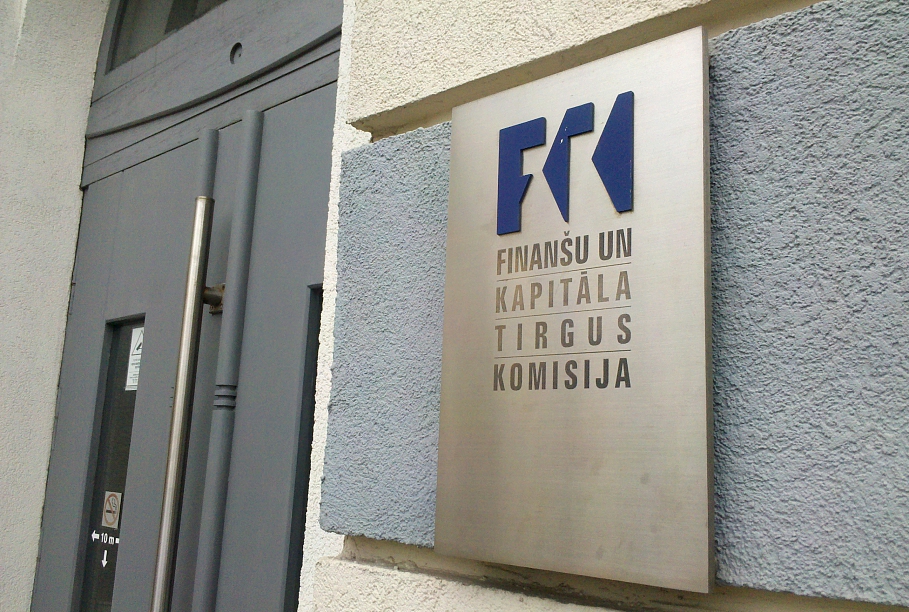FKTK said it had taken a decision imposing a fine of 14,200 euros on AS "Meridian Trade Bank" because the bank had failed to draw up and submit an audited annual report for 2017 - a rather basic requirement.
But in a far more drastic move it also slapped a 2.2 million euro fine on LPB bank (formerly known as Latvian Postal Bank, "for breaches of the anti-money laundering and counter terrorist financing (AML/CTF) regulatory provisions; besides, the Bank was instructed to dismiss Member of the Board A. Kalveršs from the field of the AML/CTF compliance and issued a warning to the above person. Other legal obligations upon the Bank under the decision include submission of action plan for addressing identified infringements and weaknesses to the FCMC for consideration within the specified deadline and an independent assessment of internal control system."
FKTK said it had carried out an on-site inspection and off-site target inspections of the Bank, examining customer transactions conducted up to 28.08.2018.
"FKTK has repeatedly found several breaches indicating to serious deficiencies in the Bank's internal control system in the AML/CTF field, as they have been detected in the most essential supervisory elements regarding customer due diligence and transaction monitoring. The Bank had failed to set up its internal control system appropriate to operational risks that would ensure efficient compliance with regulatory provisions," FKTK said, before listing the bank's failings:
- the Bank failed to document the manner how the beneficiary of customer exercised utmost control over the company and benefitted from the economic activities of the customer;
- the Bank failed to timely obtain documents to verify the origin of the funds in the customer accounts, and whether the transaction volumes were proportionate to the amount of the funds received in the account;
- the Bank failed to timely ensure customer due diligence and documentation of results, as well as conclusions in the customer cases were incomplete;
- the Bank failed to document a reasoned judgement regarding the activities of a group of connected clients, including legal and economic substance of intra-group transactions;
- the Bank failed to give sufficient weight to the unusually large, complex, inter-related transactions that have no apparent economic or visible lawful purpose, as well as failed to assess transactions with major cooperation partners and adequately document conclusions of due diligence, failed to timely obtain documents supporting customer business activities, failed to assess compliance of the business activities with the declared activities.
FKTK Chairman Pēters Putniņš said: "Our decision is yet another sign that we are closely following how this area in the banking sector has been brought to order. Also other market participants should bear in mind that such deficiencies and system weaknesses are not permitted in any of Latvia's banks.
Of course, it annoys us as a banking regulator that irregularities detected in the Bank have been already identified on several occasions and this has been continuous non-compliance, therefore the penalty is adequate to what we have established. I would like to emphasize that we will continue performing similar checks and other supervisory activities to ensure further development of the Latvian financial sector in line with the government's instructions and the management of the change in the financial sector pursuant to regulatory requirements."
FKTK had already previously imposed sanctions on the Bank for identified breaches of anti-money laundering and counter terrorist financing (AML/CTF) regulations, as well as deficiencies in the Bank's internal control system. On 25.07.2016, an administrative agreement was entered into by the FCMC and AS "Latvijas pasta banka" (former name of the Bank) aimed at addressing weaknesses identified in the Bank's activities, and setting a number of legal obligations for the Bank. After expiry of legal obligations laid down in the administrative agreement the FCMC performed a repeated inspection of the Bank and established that the Bank's internal control systems in the AML/CTF had still failed to adequately meet provisions of the external and internal regulatory provisions.
Breaches identified in the inspections relate to the period of time when the official responsible for the AML/CTF compliance was the Member of the Board Arnis Kalveršs, who is still in office. FKTK concluded that Kalveršs had failed to ensure that adequate measures were taken in the Bank for the improvement of its internal control system in order to prevent violations of regulatory provisions. In view of above, FKTK requested the Bank to dismis Kalveršs from the field of the AML/CTF compliance and issued a warning to him.
Now the Bank must submit an action plan regarding elimination of weaknesses and deficiencies identified and take measures detailed in the plan in order to avoid further similar violations in the AML/CTF internal control system, as well as perform an independent assessment of compliance and efficiency of the Bank's internal control system involving auditors.
The fine of 75% of maximum statutory amount has been applied to the Bank, i.e. 10% of the Bank's total annual turnover and must be paid within one month.
As previously reported by LSM, both Meridian and LPB are among Latvia's problematic boutique banking sector. Earlier this year, LPB insisted it had a new business plan and a new approach - a claim that looks questionable considering the penalty handed out today.
You can read our overview of the boutique banks from earlier this year HERE.






























